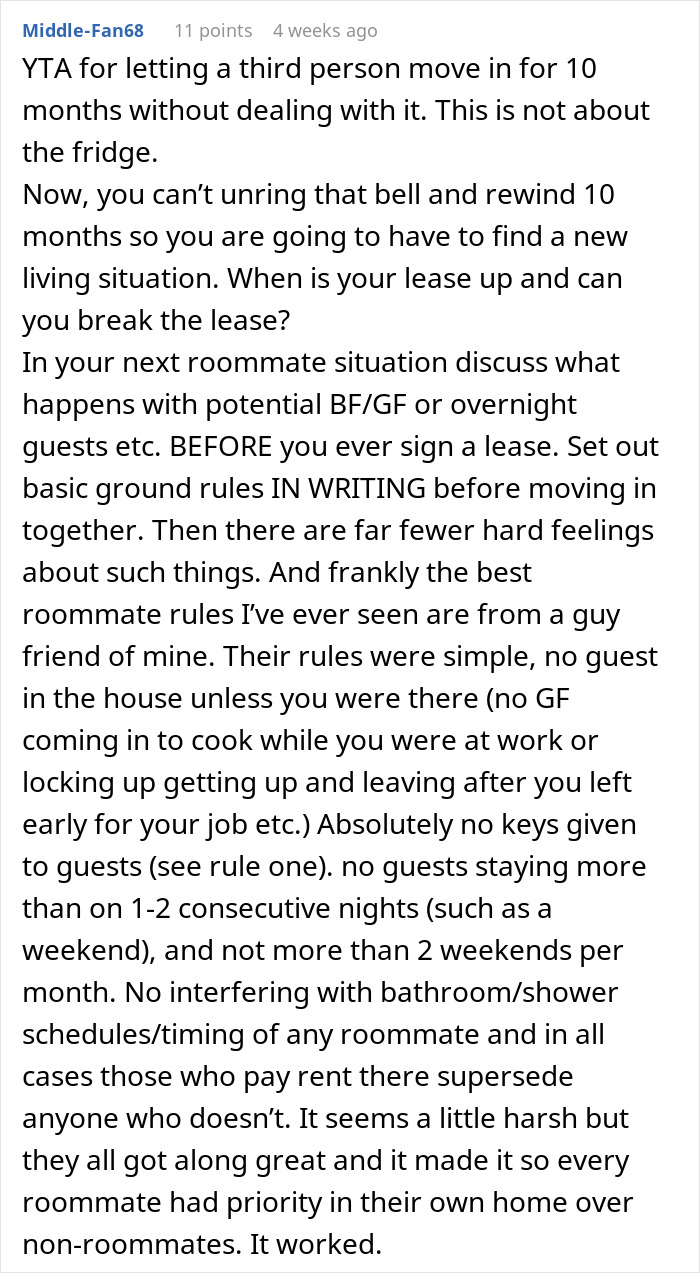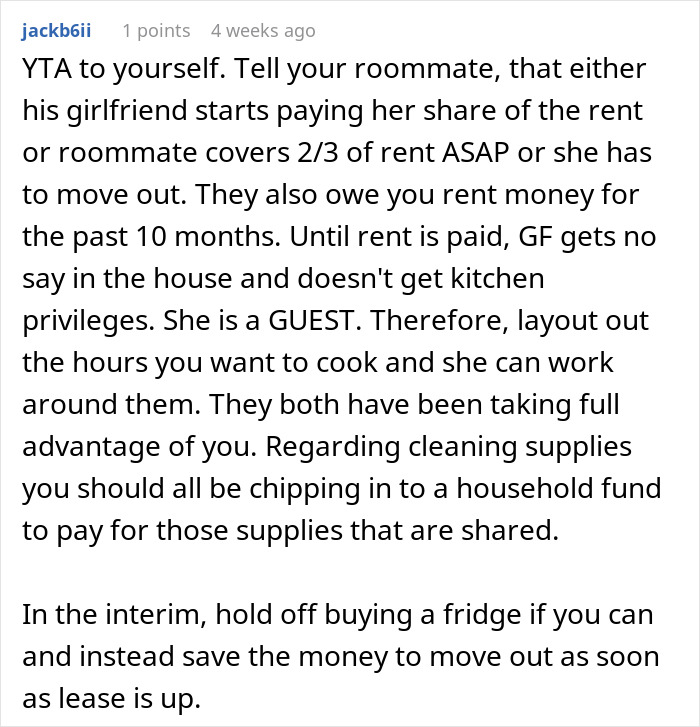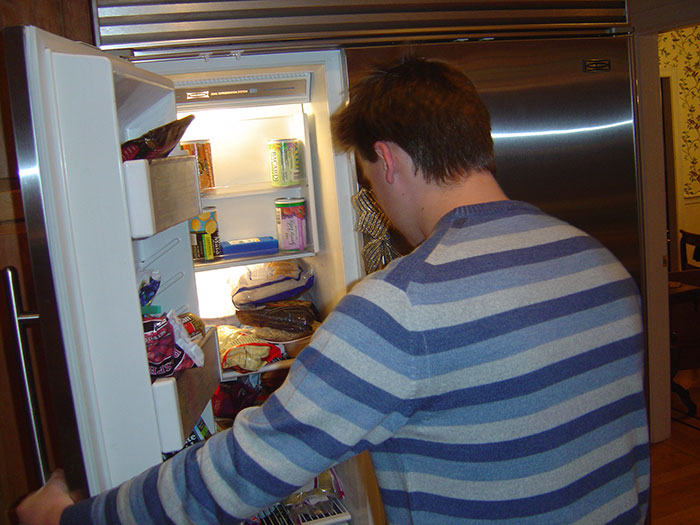We tend not to appreciate the things in our lives until it comes time to share them with strangers, aka roommates. Take a fridge, for example. How frustrating it is to come back after grocery shopping just to see that there’s no space because it’s full of other people’s food and leftovers. Or that no one fancies cleaning it, which turns it into one of the most chaotic and hazardous places in your home.
Fearing the same would happen to him, this guy went online to ask fellow netizens if it would be rude for him to deny roommates access to a fridge he was thinking about buying. Since their track record wasn’t the cleanest, he was hesitant to let them use it.
Sharing a fridge with roommates isn’t as straightforward as it may seem
Image credits: Lily Ballard/Flickr (not the actual photo)
Fearing that the shared fridge situation isn’t going to work, this guy considers banning his roommates from using it
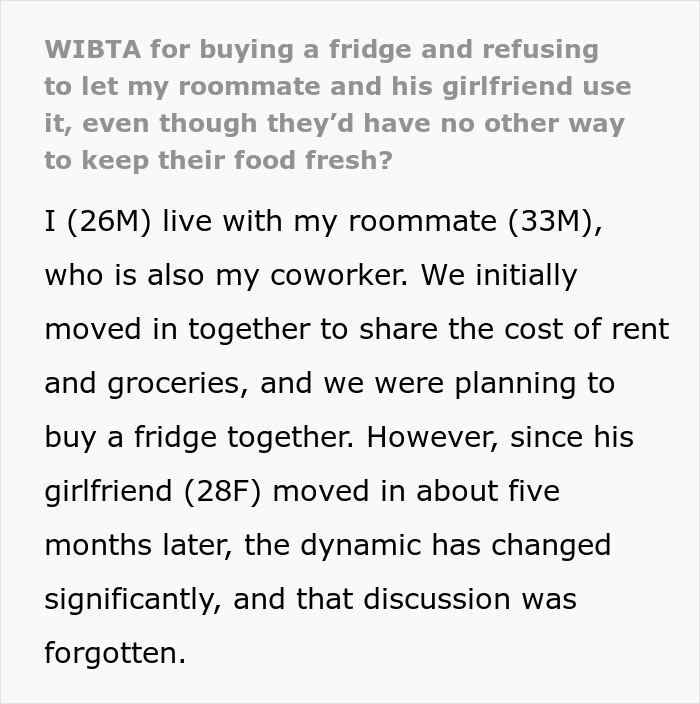
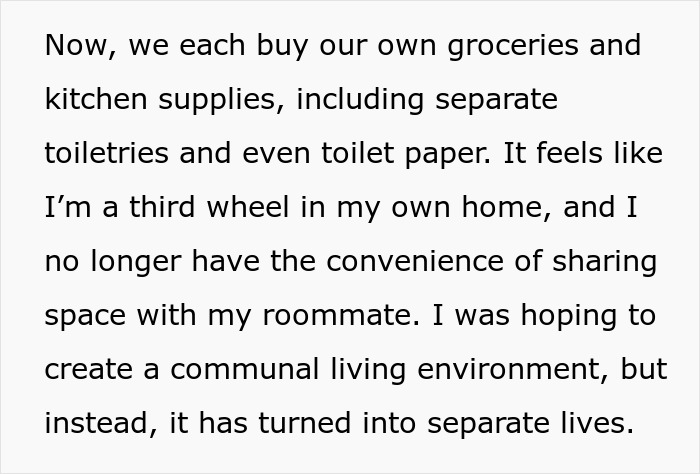

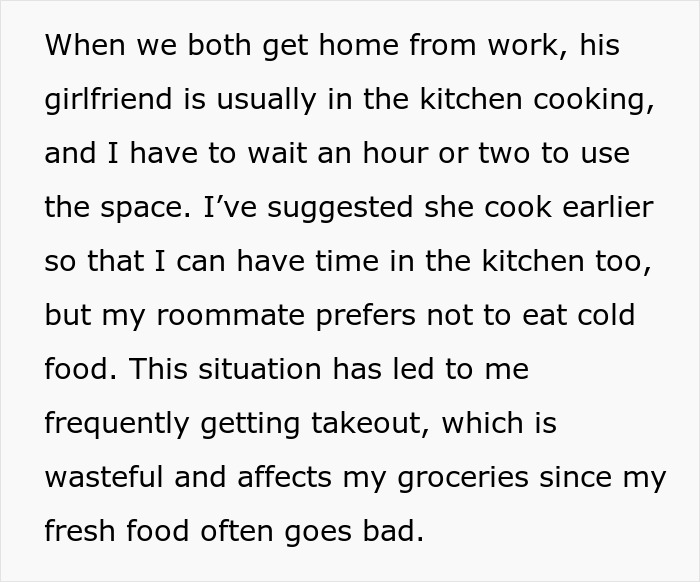



Image credits: Ave Calvar/Unsplash (not the actual photo)

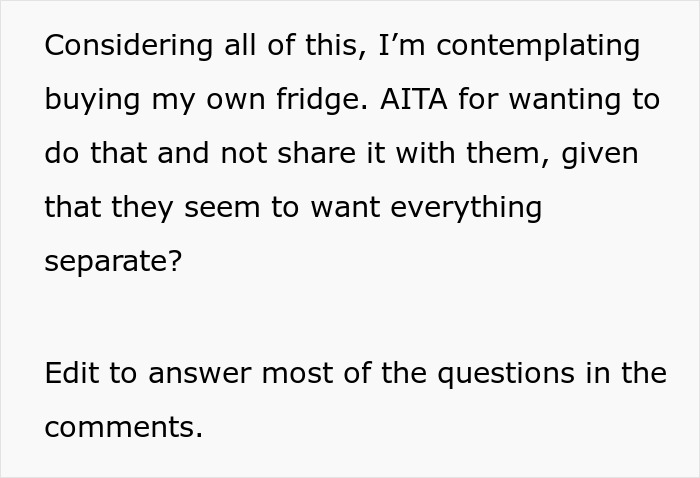


Image credits: frxye_
To share or not to share a fridge?
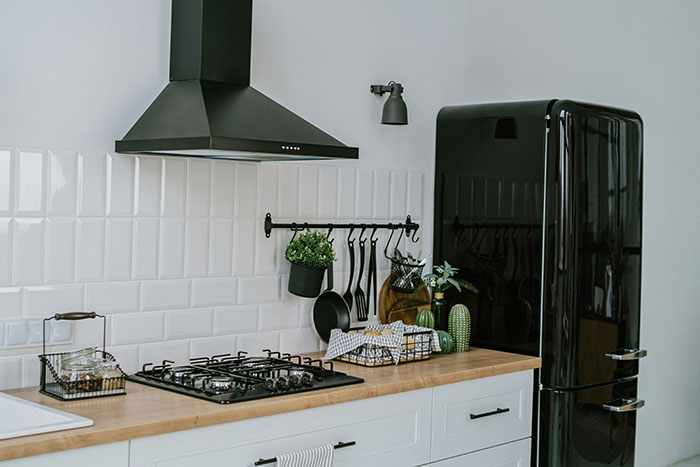
Image credits: Oleg Ivanov/Unsplash (not the actual photo)
To share or not to share a fridge—that is the question, which torments the author of this story. Sharing such an appliance for the first time can be indeed tricky, as it requires quite a few considerations that should be discussed beforehand. Like, should roommates share groceries? If not, then how should they divide the space fairly, and when and who should clean it so it doesn’t become a grimy food dumping ground?
Let’s take one question at a time and start with food sharing. Staples like condiments, butter, eggs, oil, and milk might be great candidates for communal use, as buying duplicates takes quite a bit of space if they aren’t consumed rapidly. Buying them together in bulk can also save money for the roommates.
They might agree to buy some ingredients individually or they may feel uncomfortable sharing anything. Generally, it depends from roommate to roommate, so it’s important to talk about it in advance. If a person is unsure if they can use something, they should always ask.
In case roommates decide not to share or only partly share the food, they should establish a system to separate the fridge space. It could be equally divided in half, by shelves, drawers, or any other way that makes sense for the residents. The designated area for shared food can be the door since it holds condiments, milk, eggs, etc. perfectly.
To keep things tidy and organized, it may be a good idea to have a storage and labeling system. Leftovers could be put in stackable containers, while labels can mark what food is off-limits.
At the end of the day, it’s all about doing the right thing—most people have that sense in them

Image credits: Guillaume Issaly/Unsplash (not the actual photo)
In addition to keeping the fridge organized so no one has to play a game of Where’s Waldo every time they open it, it’s equally important to keep it clean. This entails throwing out expired food as soon as possible and wiping any spillages. It clears up space and prevents foul odors from developing. And chances are, there will be people who will want to avoid cleaning the fridge. To solve this problem, roommates can create a cleaning schedule and add ‘weekly fridge cleaning’ to it.
At the end of the day, it’s all about doing the right thing—most people have that sense in them. If someone makes a mess, they should clean it up, and if they swipe a frozen pizza or a snack they were desperately craving off of a roommate, they should replace it ASAP. In addition, it’s not okay to eat a significantly larger portion of the shared items and it’s plausible if you pick up something that you know you’re running out of. With the combination of common sense, communication, and boundaries, sharing a fridge with others should be a breeze.
However, if that doesn’t happen, a person always has the option of having their own mini fridge. When shelf negotiations fail, it can be a good alternative to storing snacks and personal groceries separately.
It’s also a great choice for anyone who has allergies, dietary restrictions, or religious practices so they can keep their food uncontaminated and stocked just for them.
The author provided some additional information in the comments
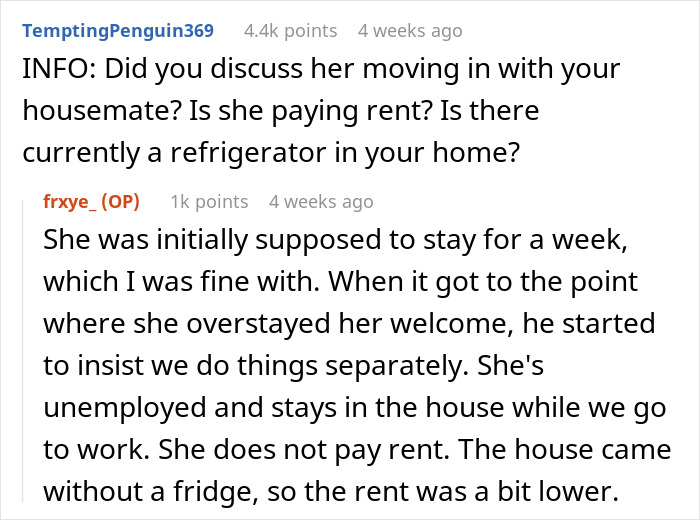
Some readers sympathized with the author and even suggested getting a mini fridge


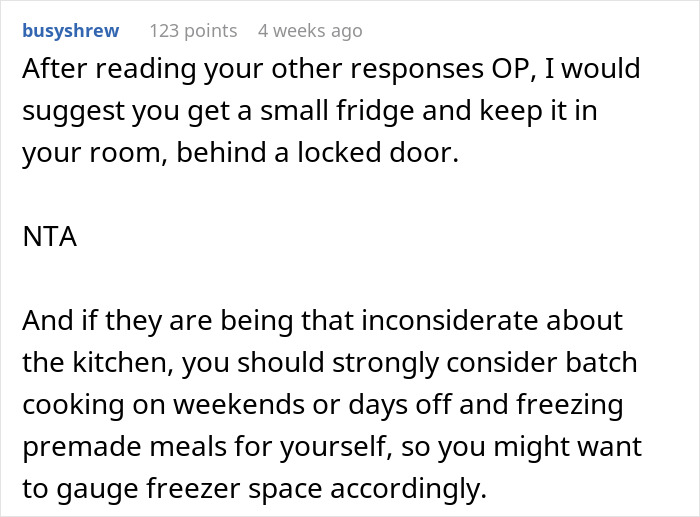

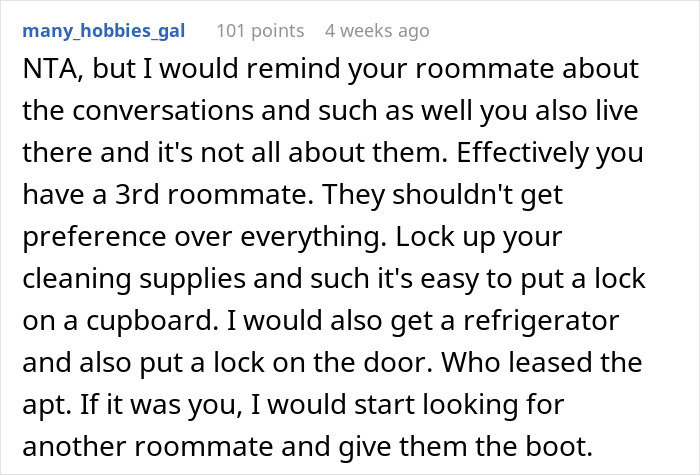






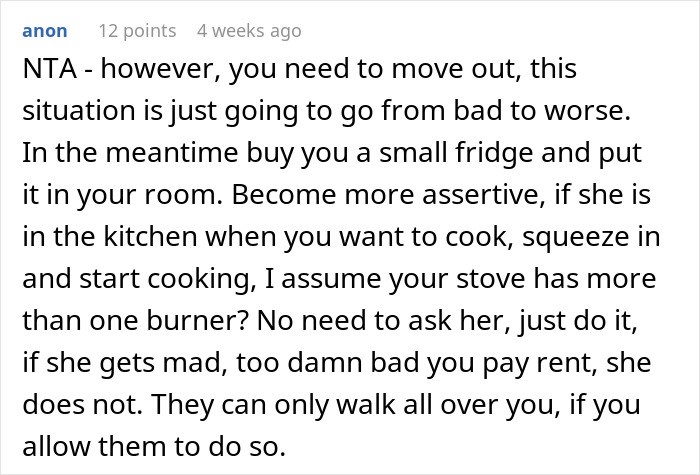
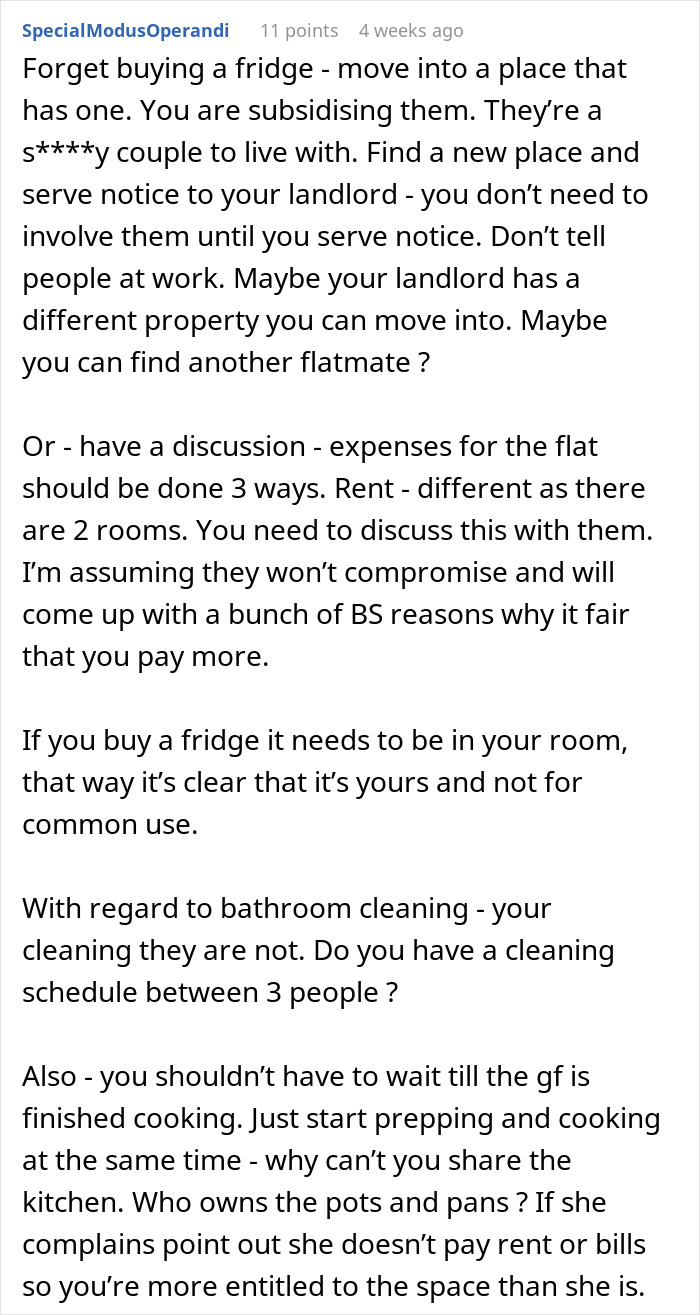


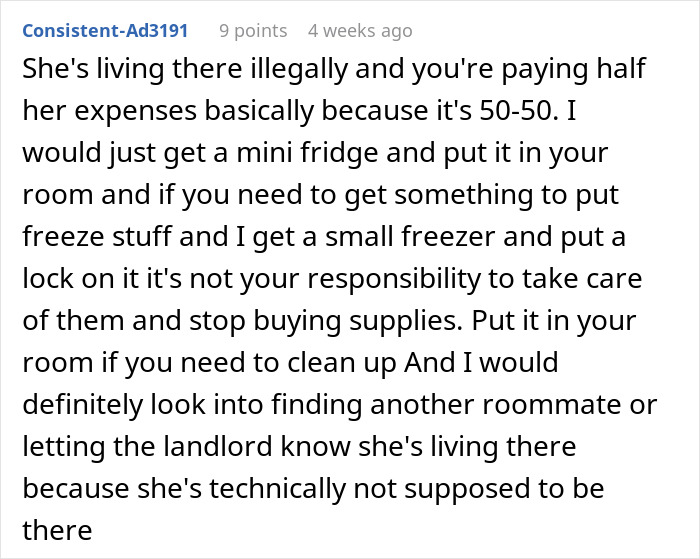














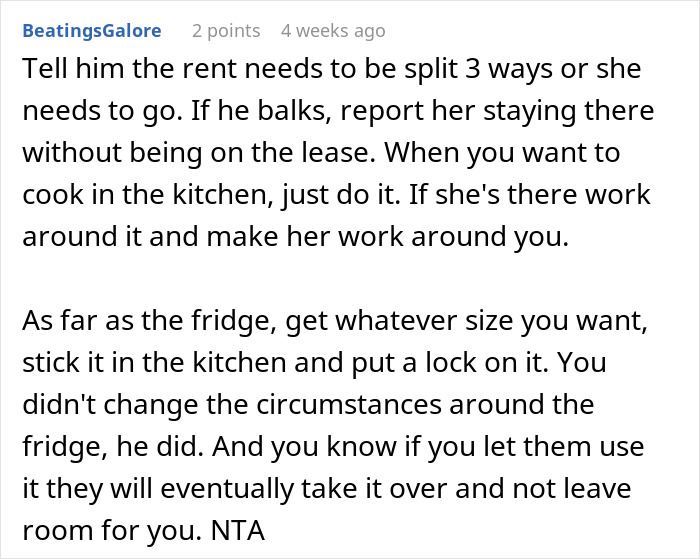
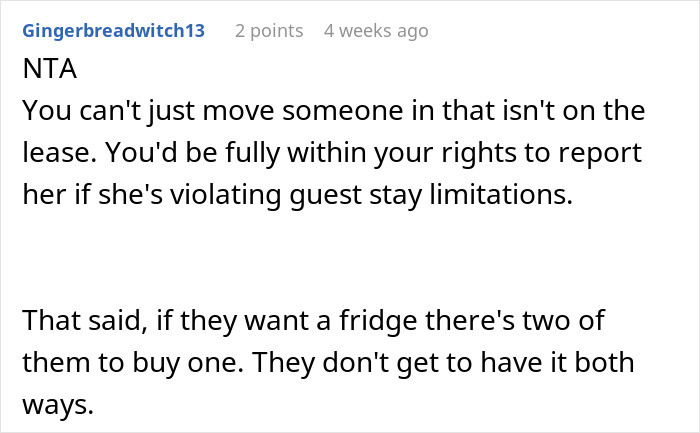
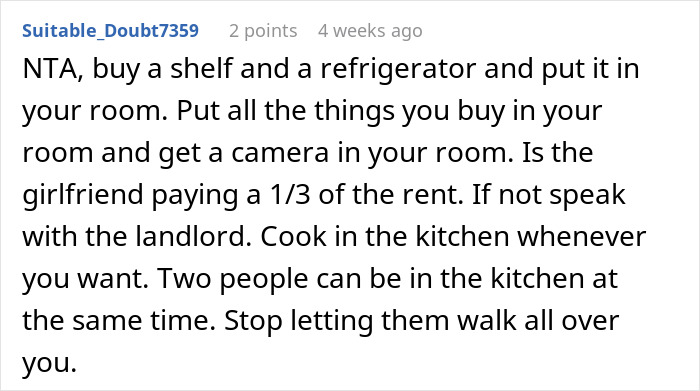
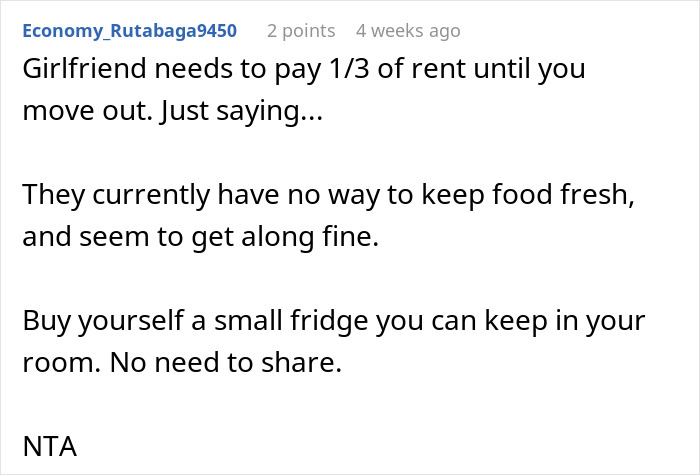

Others thought he was wrong for being a doormat


